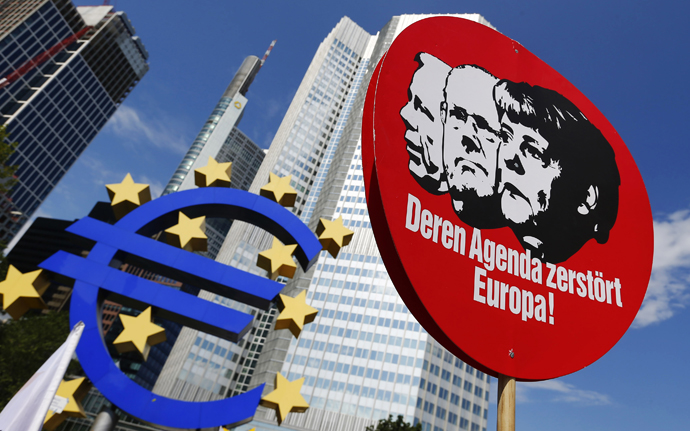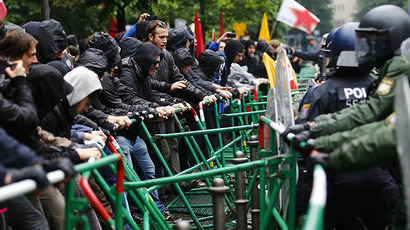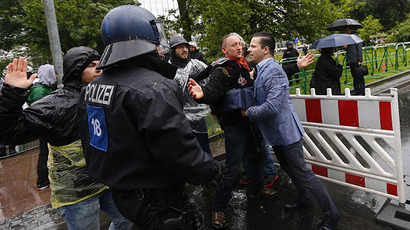Thousands of 'Blockupy' protesters in Frankfurt decry austerity, police brutality (PHOTOS)
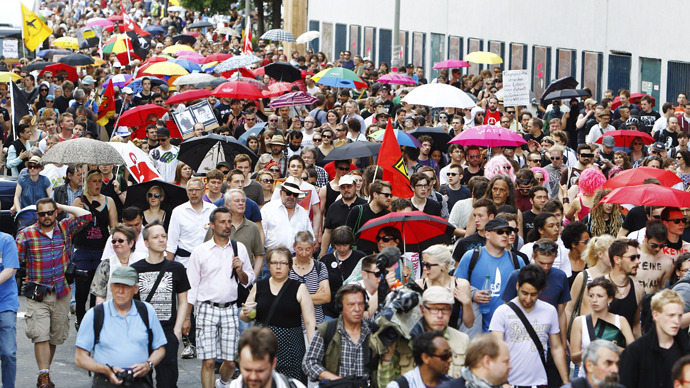
Thousands of protesters poured onto the streets of Frankfurt to decry harsh police methods used to break up an anti-capitalist 'Blockupy' demonstration in the city one week prior. Protest organizers say up to 20,000 turned out for the event.
Saturday’s march followed the same route where police surrounded nearly 1,000 demonstrators last Saturday in the run-up to a violent confrontation.
Many in attendance hoisted up a motley array of umbrellas in defiance of law enforcers, who are against the use of parasols at demonstrations. Others carried banners with photos from the previous Blockupy protest depicting police violence.
Placards and banners showing the demonstrators' solidarity with
Turkish protesters who were recently the victim of excessive
police force also featured prominently at the event.
The march, which again concluded at the European Central Bank – the focal point of the previous Saturday’s clashes – was organized in protest against the violation of fundamental rights and freedoms, Blockupy activists said.
Members of the Social Democratic Party of Germany, the Greens,
and the Pirate Party also took part in the protest. Police
estimate some 7,500 turned out for Saturday’s march, while
organizers claim there were 20,000 attendees.
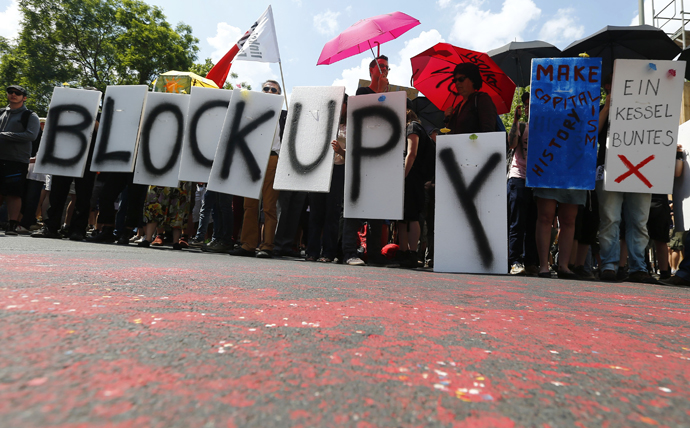
Last Saturday, Police incensed anti-austerity Blockupy marchers
by stopping them before they were able to approach the ECB
building in Frankfurt after protesters reportedly set off
firecrackers.
Blockupy accused police of intentionally attempting to escalate
tensions by sealing off a route which had previously been
approved “by several legal institutions.”
Police fell on demonstrators with pepper spray and truncheons
after saying they were repeatedly attacked by a small group of
protesters. Several demonstrators and police officers were hurt
in the melee.
An open letter condemning the violent June 1 police crackdown on
demonstrators was published in the New Germany daily. The letter,
signed by German political scientists, historians and social
scientists, said they were "extremely concerned about the
actions of the police," who should have been protecting the
protesters, not hindering them.
